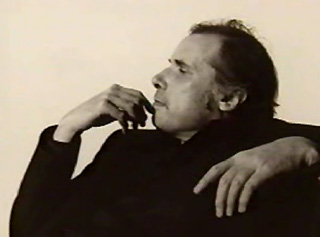 Glenn Gould had no love for music competitions.
Glenn Gould had no love for music competitions. Once every three years, aspiring young musicians from all over the world come to Banff, Alberta, to compete in the Banff International String Quartet Competition (BISQC). They come to the resort town in Rockies armed with their music and instruments, with years of training, and with high hopes. This year, from August 29 to September 4, 10 quartets will play before a seven-member panel of judges.
For that reason, music competitions have always had their critics. “Competition is for horses, not artists,” the Hungarian composer Béla Bartók once famously declared.
One of the most eloquent arguments against music competitions was made 50 years ago by outspoken Canadian pianist Glenn Gould, who tore them to shreds in an essay entitled “We Who Are About To Be Disqualified Salute You!” To Gould, competitions were circuses that favoured conventionality over originality and mediocrity over excellence. Also, he argued, competitions were superfluous, as the best musicians inevitably come to the world’s attention regardless. And he described the kind of audiences these events attracted as a “partisan, odds-quoting, book-making mob.”
Of course, competition organizers can be counted on to argue that competitions are useful, necessary and supportive of the highest artistic aspirations.
That’s why it’s surprising to hear BISQC’s executive director Barry Shiffman go wildly off-script. “Competitions are evil – that’s a given,” says Shiffman, himself a violinist and a former member of the St. Lawrence String Quartet. “The idea of a string quartet competing against another string quartet is perverse, and we go into this knowing it’s a strange paradigm. Like carbon credits in the energy sector, we offset what is inherently problematic with a range of programming and events that make it worthwhile.”
For Shiffman, who has been in charge of BISQC since 2006, fixing what’s wrong with music competitions is an act of redemption. For the last decade, he’s made it his mission to bring a kind of Canadian sensibility to BISQC, through a regime of peace, order and good government.
BISQC also strives to be a major player in the string-quartet world, and the proof is in the top prize. First prize is $25,000 in cash, a recording produced at the Banff Centre, plus a worldwide concert tour. While piano competitions are everywhere, there aren’t many for string quartets. In North America, BISQC is pretty much the only one, which raises the bar – and the stakes.
Shiffman warms to the subject of how his competition gets it right. “Every musician who comes to Banff for the competition leaves with a great experience,” he says. “We don’t eliminate anyone until the night before the final round. The quartets play multiple works in their entirety before hundreds of adoring fans, which in itself is very empowering for a young musician.”
He goes on to explain the ongoing relationship BISQC cultivates with its laureates. “If you win the competition, we work with you for three years. We have pre-arranged tours in North America and Europe for the winners so that what used to be a one-week program is now a supportive three-year program.”
And those who don’t win leave with high-quality music videos of their performances, produced at the Banff Centre, that they can use for promotional purposes.
As well, Shiffman points out that the competition plays a role in repertoire-building: every time the competition is held, organizers commission a Canadian composer to write a new string quartet that all participants are required to learn and play. There’s even a special prize for the best performance of the new piece. (Montreal-based composer Zosha di Castri wrote this year’s competition piece.)
And as for Gould’s criticism of competition audiences, Shiffman acknowledges that they can be “hugely partisan.” But he doesn’t believe that’s necessarily a bad thing. “Our audience is enthralled by the performances. They love to hear young people playing at the top of their game. And sometimes they’ll tell me exactly why their favourite quartet deserved to win.”
“I say, ‘Go and tell them how great they were. And then go back to your hometown and get your local chamber-music presenter to book the amazing quartet you just heard in Banff. Tell them the competition got it wrong, and they should have won.’ I love it when that happens.”
© Colin Eatock 2016
 RSS Feed
RSS Feed

